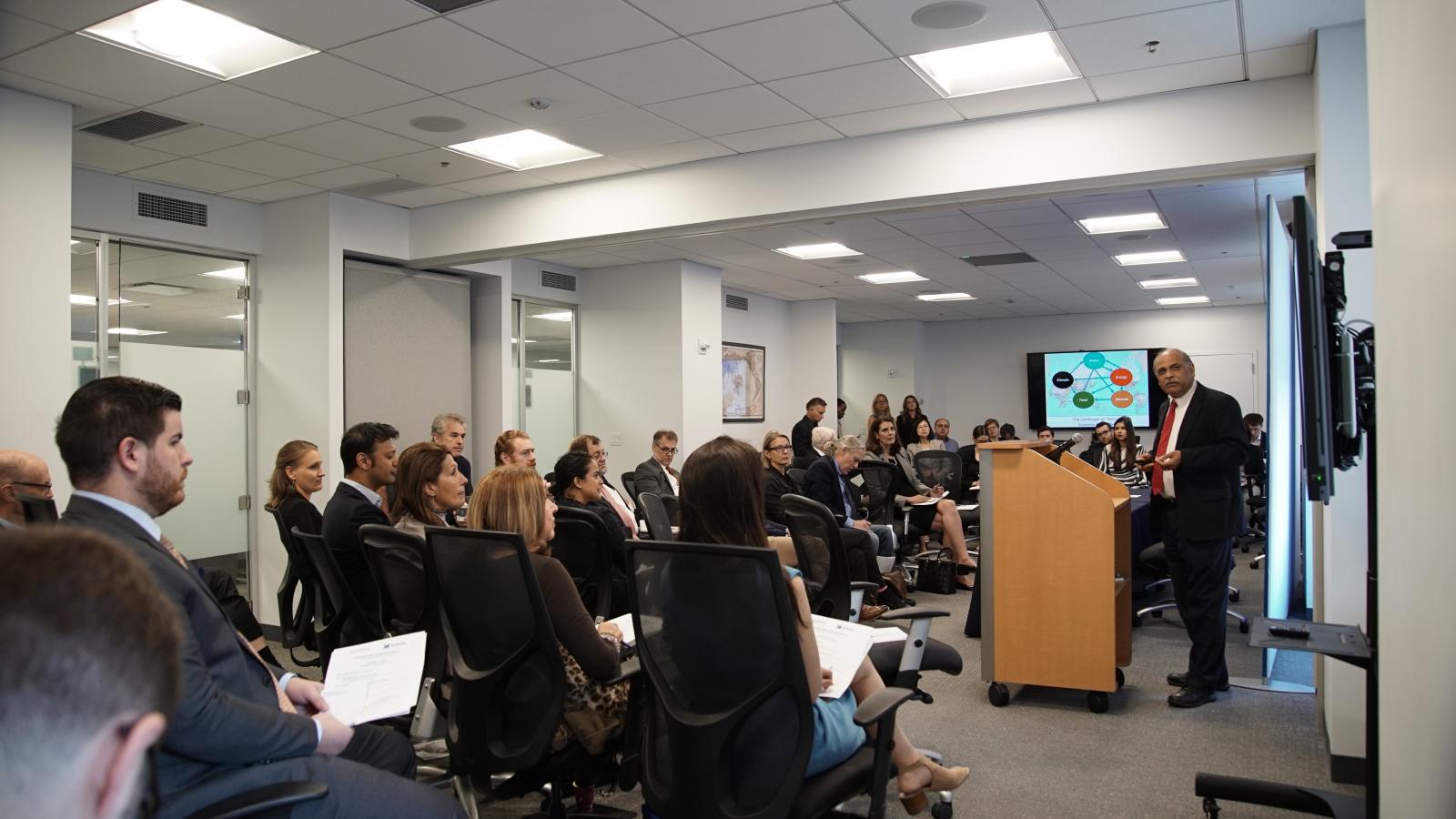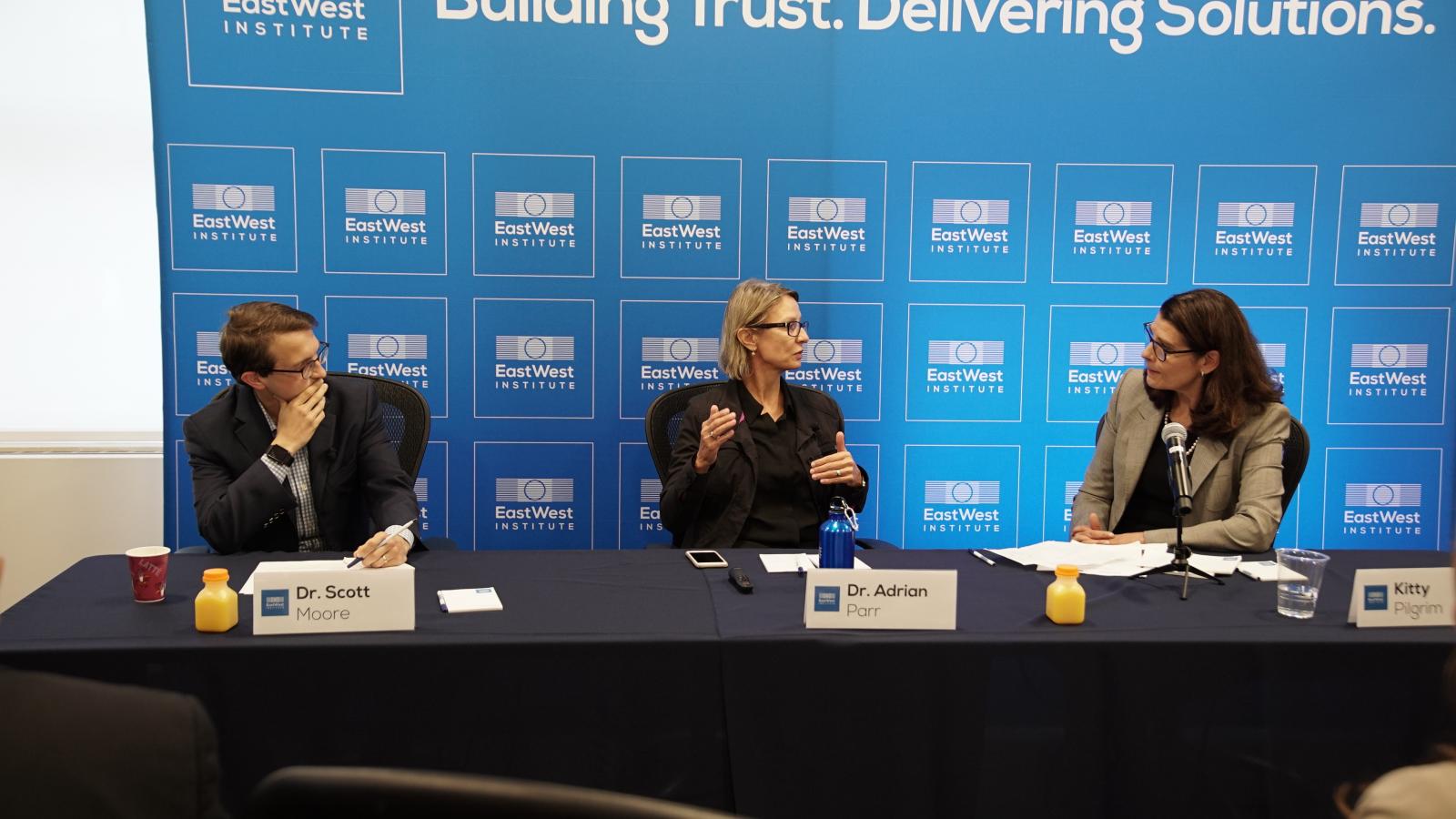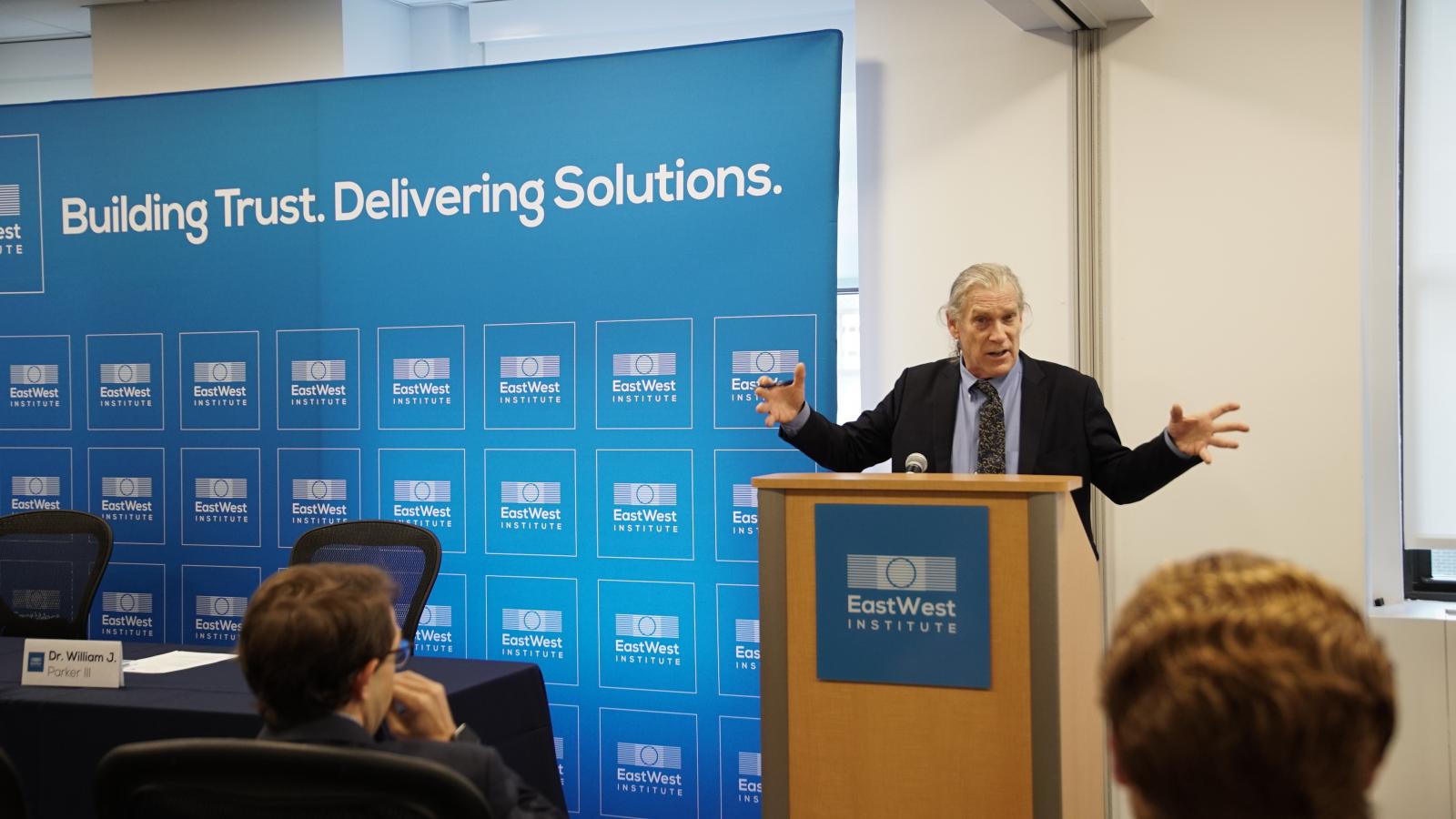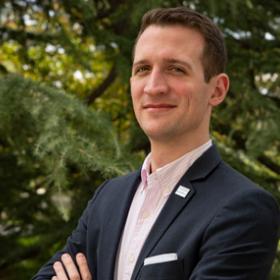
President Calderon and EarthX Founder Trammell Crow Discuss Hydrodiplomacy
On September 25, on the occasion of Climate Week New York and the 74th Session of the UN General Assembly, the EastWest Institute—in collaboration with EarthX—hosted an event entitled “International Hydrodiplomacy: Mitigating Climate Security Risk” at EWI’s New York headquarters. The discussion featured the Honorable Felipe Calderon, former President of Mexico and Chair of Global Commission on Economy and Climate, and brought together numerous experts, policymakers and scientists to explore the increasingly interconnected nature of water scarcity, climate change and security.
In their opening remarks, EWI CEO and President Dr. William J. Parker and EarthX Founder Trammell S. Crow brought attention to the manifold effects of climate change on humanity, economy, cross-border relations and other geopolitical elements.
The event's keynote speaker, Professor Upmanu Lall, Director of the Columbia Water Center, highlighted the existing and forthcoming challenges while discussing global water security. According to Lall, diplomacy on the local level is flourishing, as evidenced in the United States by the success of the Mississippi River Cities and Towns Initiative (MRCTI), which has brought together several mayors and city councils along the Mississippi’s tributaries to coordinate preservation of the river’s integrity—where national-level policy has largely fallen short.
President Felipe Calderon joined the discussion as the event's guest of honor. In a conversation with Dr. Parker, Calderon addressed key issues arising from the unpredictable and ever-changing nature of climate change. Highlighting issues such as the alarming levels of CO2 concentration, rising global temperatures and the stark disconnect between the demand and supply of water resources, Calderon painted a challenging outlook for the global future if both governments and the private sector fail to collectively take immediate and resolute action.
Calderon shared an urgency towards devising a concrete set of actions on climate change, incorporating both strong economic incentives and sustainable solutions. Calderon created a case for several practical action items, including: 1) redesigning cities and placing a premium on vertical versus horizontal growth; 2) reforming hazardous land use; 3) maximizing energy efficiency and the affordability of renewable sources; 4) reducing food waste; and 5) tackling water stress and redistribution of scarce water resources.
The event concluded with a panel discussion on the humanitarian and regional security implications of hydrodiplomacy, moderated by former CNN correspondent and EWI Board Member, Kathryn Pilgrim, and featuring expert analysis from Dr. Scott Moore, Director of the University of Pennsylvania Global China Program and Dr. Adrian Parr, Chair of Water Access and Sustainability with UNESCO.
The panel emphasized that water scarcity is more likely to be a catalyst for cooperation than conflict. Parr suggested that the efficacy of large-scale international treaties coupled with grassroots activism will be significant in pursuing equitable water management solutions. She further warned that if the water crisis remains unresolved, it will exacerbate the issue of climate refugees—predicted to give rise to 50 million displaced people by 2040.
Reflecting on his field experience, Moore emphasized that beyond the challenge of water scarcity, the crisis can be attributed to poor resource management, in particular to the current design of water pricing mechanisms. He suggested that instead of political and economic interests, problems of inequitable water distribution should be the focus of pricing policies. Moore claimed that this can be best achieved by focusing on non-market oriented pricing and addressing both residential and industrial water consumption.
The impacts of climate change have intensified water scarcity along with decline in water quality available specially to impoverished communities around the world. To this end, EWI will continue to deepen its engagement in the field of climate and water security and will convene additional dialogues to ensure that regional policy influencers and decision-makers have a productive forum to assess such crucial and time-sensitive issues.





